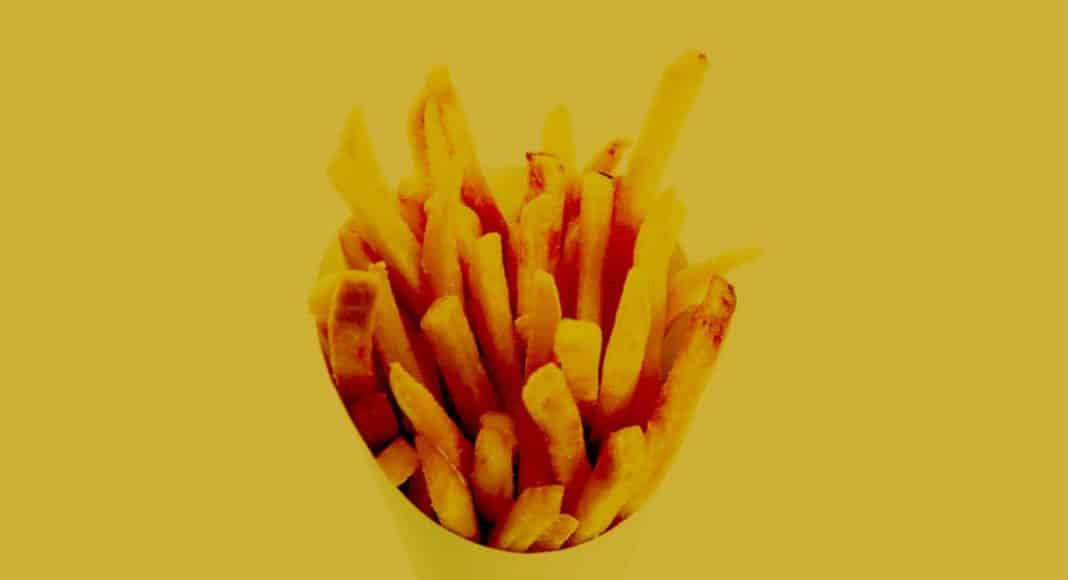[deck]From a brick of starchy carbs to the jewel in the crown of the produce aisle: how industry leaders are using science to change the image of the potato.[/deck]
Are potatoes healthy vegetables, which also trigger nostalgic memories of family dinners—or are they nuggets of pure carbohydrates? Are fries and potato chips still food once they’ve visited the deep-fryer? Should children be allowed to consume them? Should they be allowed in schools?
If you live in a potato-eating nation, you are sure to have heard these questions—or have grappled with them yourself. Potato growers are the last people to question the merits of potatoes, and are usually hearty supporters of processed spuds. But in this age of increasingly health-savvy shopping, when specific foods tend to be singled out as the “culprits” for issues such as obesity, the potato industry can no longer ignore the need for energetic promotion of the “humble” product of their labours.
This is exactly what the Alliance for Potato Research and Education was formed to do. The U.S.-based organization is in its infancy, having been established just last year—but it has already been making waves in North America and beyond. Its mission: to foster and disseminate science-based information about the health merits of potatoes. “We’re 100 per cent dedicated to expanding the scientific research [about potatoes] and translating that into policy and education initiatives that recognize the role of all forms of the white potato, which we all know is a very nutritious vegetable,” says Maureen Storey, APRE’s CEO. “That’s the nuts and bolts of APRE—a strong foundation in science.”
A joint initiative of the major U.S. and Canadian processors—McCain Foods, Conagra Foods/Lamb Weston, Simplot, Heinz/Ore-Ida and Cavendish Farms—APRE also works closely with the U.S. Potato Board and the U.S. Potato Council. But APRE is active in Canada as well.
“APRE is trying to get their message out to both the U.S. and Canada, and also globally,” says Edzo Kok, outgoing executive director of the Potato Growers of Alberta, and member of APRE’s board of directors. “We want to raise awareness of how potatoes can become part of a healthy diet.”
Conflicting Stories
The reasons behind the potato’s relatively recent image problem can’t be nailed down conclusively, but they are rooted in both diet and science—or lack thereof. Fad diets ruling out carbohydrates first instigated mass panic about potatoes in the 1990s and 2000s, a problem for the industry that was compounded by a lack of solid science offering an alternate perspective.
This resulted in a conflict between two “stories” about potatoes, according to Frank Van Schaayk, regional president of the Americas for McCain Foods. “One story is fond memories of comfort and nutrition—people remember great-tasting fries or a baked potato with a nice steak, or the mashed potatoes their mother made,” says Van Schaayk. “The second story is getting a little louder, unfortunately—that potatoes are unhealthy or starchy if they’re not prepared the right way.”
But in response, the potato industry has stepped up to the plate. “The potato industry, led by the processed potato folks, recognized that we need more science, particularly nutrition science, around the nutritional value and healthfulness of the white potato,” says Storey. “APRE’s intent is to focus on the people who are advising the public, such as registered dieticians and medical professionals.”
APRE has strong models in other industry makeovers, such as almonds and eggs—both foods that have periodically come under fire for fat content and cholesterol. Speaking specifically about the almond industry, Storey says that once the almond’s image had been tarnished, it took a huge investment to reverse the negative messaging. “Almonds were thought of as little pellets of fat,” she says. “They’ve invested over a million dollars a year over many years in research in order to understand how almonds can be part of a healthy diet and have very important health benefits that we never knew about before.
“The almond industry, like the egg industry, invested in research, and both of those industries have been able to turn the tide in the community.”
Changing Perceptions
When the processing giants initially came together to form APRE, it was with the intent to change negative consumer perceptions of potato foods like french fries. But they quickly realized that the focus had to shift to something more foundational first. “It became very clear early in the game that we really had to get the public to reaccept potatoes first before we focused on the french fry,” says Kok. “Up until now, that’s been the focus—reacquainting the public with potatoes, just straight potatoes, and how they can be part of a well-balanced diet.”
For APRE, a crucial aspect of that educational bent is its foundation in science and reliance on the voices of academics and health professionals. “The public needs to hear it from professionals that there are a lot of good things in a potato,” Kok explains. “We shouldn’t be scared of making them part of a well-balanced diet. That’s what APRE is doing—getting this put in writing, getting published, raising awareness. It’s hard to dispute science. These people out there trying to portray potatoes negatively—if we can confront them with the facts I think we can quiet them down.”
There are a lot of common perceptions among consumers that are easy to dispute—such as the fact that, according to Storey, “a lot of people think that if a vegetable is white it doesn’t have good nutritional value. But there are a lot of fruits and vegetables with white flesh that provide important nutrients in our diet.”
However, APRE’s research is also looking at the accessibility and affordability of potatoes, as well as consumer preferences measured by waste—rare is the child who will refuse to eat a potato, even if the other vegetables on the plate get tossed at the end of the meal—and the nutritional value of the white potato, including its high potassium, fibre and vitamin C content. Aided by a team of dieticians and nutritionists across the continent, the organization is already working hard at disseminating these positive messages in the forums that matter most.
“Our mission through APRE is not to sell anybody anything. It’s to bring balance to the dialogue about potatoes, and to rebalance the messaging,” stresses Van Schaayk. More and more, he argues, the critics are making particular foods, such as potatoes, the poster child for problems like the obesity crisis, when the real culprit is a combination of poor portion control and overall food choices, and a lack of exercise.
Growers can help in this mission. They are already helping, in fact—across Canada, according to Kok, growers donate half a cent per hundredweight of potatoes delivered to processors to APRE. And as long as growers continue to spread the word about the goodness of potatoes, they will have credibility in the eyes of Canadians.
“Farmers of any type, and potato farmers in particular, are credible, hardworking and honest people. When they deliver a message it’s one that most people will listen to,” says Van Schaayk.











